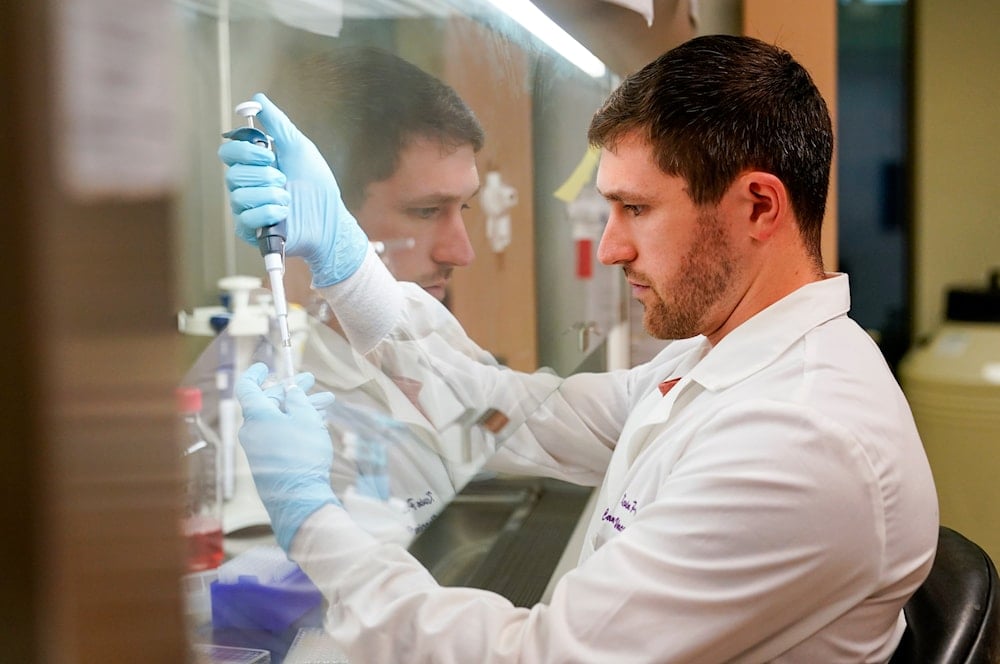Messenger RNA cancer therapy administered to first patients in UK
The research that is still in its early stages and can take years to become available to patients seems very promising.
-

Research scientist Kevin Potts uses ovarian cancer cells to set up an experiment at UW Medicine's Cancer Vaccine Institute on Thursday, May 25, 2023, in Seattle. (AP)
At Hammersmith Hospital in West London, mRNA therapy, a revolutionary new cancer treatment, has been administered to the first UK patients to evaluate the therapy’s safety and effectiveness in treating melanoma, lung cancer, and other solid tumors.
An investigator with the trial's UK arm, Dr. David Pinato of Imperial College London, stated, “New mRNA-based cancer immunotherapies offer an avenue for recruiting the patient’s own immune system to fight their cancer."
“We desperately need these to turn the tide against cancer,” he added, noting that this trial is fundamental for helping develop less toxic and more accurate new anti-cancer therapies, knowing that this research is still in its early stages and could take years before becoming available for patients.
What is messenger RNA therapy?
Several cancer vaccines have recently entered clinical trials worldwide. They fall under two categories: personalized cancer immunotherapies and therapeutic cancer immunotherapies. The first category relies on extracting a patient’s genetic material from their tumors while the second one, such as the mRNA therapy newly initiated in London, is “ready-made” and tailored to a particular type of cancer.
Messenger RNA therapy uses the genetic material known as messenger RNA, or mRNA, which works by presenting common markers from tumors to the patient’s immune system as its goal is to help the latter recognize and fight cancer cells that express those markers.
The main goal of the new trial, known as Mobilize, is to evaluate the safety of this particular type of mRNA therapy and to determine whether it's tolerated by patients with lung or skin cancers and can shrink tumors. It can be administered in two ways: the first one entails introducing the genetic material alone and the second one entails the same aforementioned step combined with the existing cancer drug pembrolizumab.
There is hope
Researchers believe that even though experimental therapy is still in the early stages of testing, it may eventually lead to a new treatment option for difficult-to-treat cancers if the approach is proven to be safe and effective.
It is important to note that nearly one in two people in the UK will be diagnosed with cancer in their lifetime.
Chemotherapy and immune therapies are part of a wide range of therapies that have been developed to treat patients, but cancer cells have become resistant to drugs. Hence, tumors have become more difficult to treat, which is pushing scientists to find new methods for fighting cancers.
The new mRNA therapy, after being preclinically tested in both cell and animal models of cancer, had an effect on the immune system, which indicates that it could be offered to patients in early-phase clinical trials.

 3 Min Read
3 Min Read








